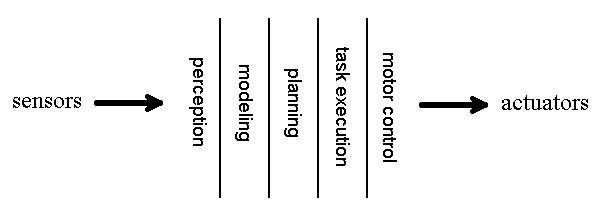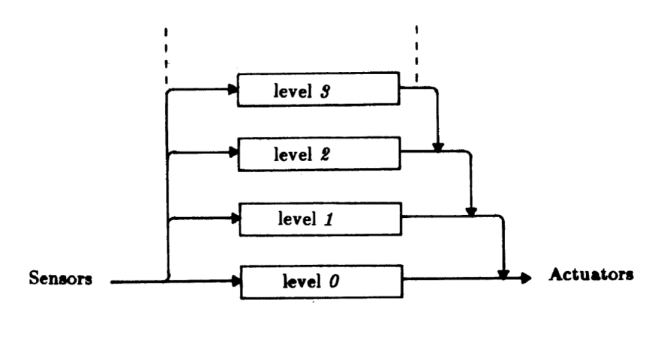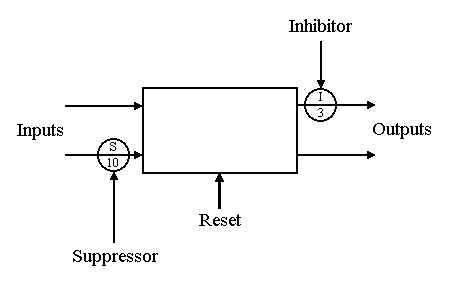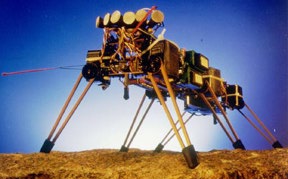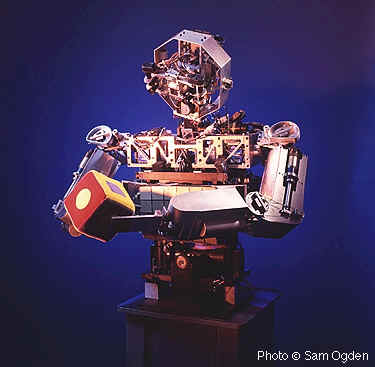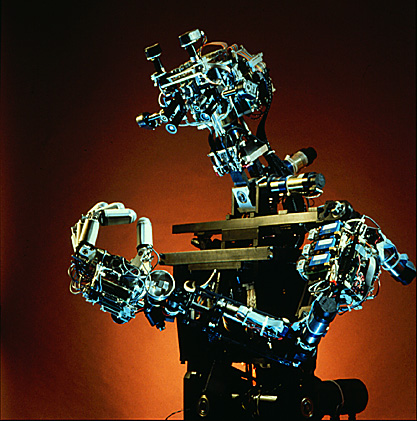Deliberative control
Knowledge-based approach
Maintain an accurate world model internally
Path planning
Sequential sense->model->plan->action organization
Poor performance in real-time complex environments
Complex behavior results from complex internal algorithms
Traditional task decomposition:
